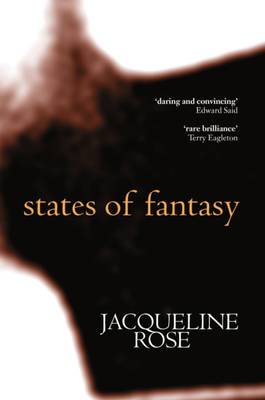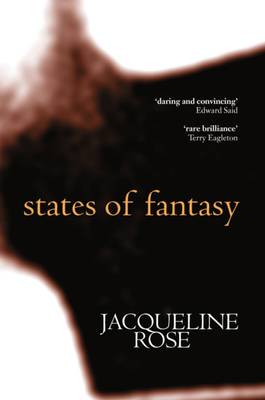
- Afhalen na 1 uur in een winkel met voorraad
- Gratis thuislevering in België vanaf € 30
- Ruim aanbod met 7 miljoen producten
- Afhalen na 1 uur in een winkel met voorraad
- Gratis thuislevering in België vanaf € 30
- Ruim aanbod met 7 miljoen producten
Zoeken
€ 106,45
+ 212 punten
Omschrijving
In September 1993, Israel and the PLO signed their first peace treaty; in April 1994, South Africa held its first nonracial elections. Jacqueline Rose argues here for the importance of these two arenas of historic conflict to the English literary and cultural imagination and to the new disciplinary boundaries of the humanities today. As in her previous books, her fundamental question is the place of fantasy in public and private identities. But in States of Fantasy she pushes her investigation into what at first glance seem unlikely places. In fact, as she convincingly demonstrates, nowhere demonstrates more clearly than the above regions the need for a psychoanalytically informed understanding of historical process. And nothing makes more visible the unbreakable line that runs between literature and politics than the place of England and its writing in those histories. Her provocative study offers the strongest rebuttal to critics who try to sever the links between the study of literature and culture and the making and unmaking of the modern world.
Specificaties
Betrokkenen
- Auteur(s):
- Uitgeverij:
Inhoud
- Aantal bladzijden:
- 198
- Taal:
- Engels
- Reeks:
Eigenschappen
- Productcode (EAN):
- 9780198183273
- Verschijningsdatum:
- 10/12/1998
- Uitvoering:
- Paperback
- Formaat:
- Trade paperback (VS)
- Afmetingen:
- 154 mm x 232 mm
- Gewicht:
- 358 g

Alleen bij Standaard Boekhandel
+ 212 punten op je klantenkaart van Standaard Boekhandel
Beoordelingen
We publiceren alleen reviews die voldoen aan de voorwaarden voor reviews. Bekijk onze voorwaarden voor reviews.











